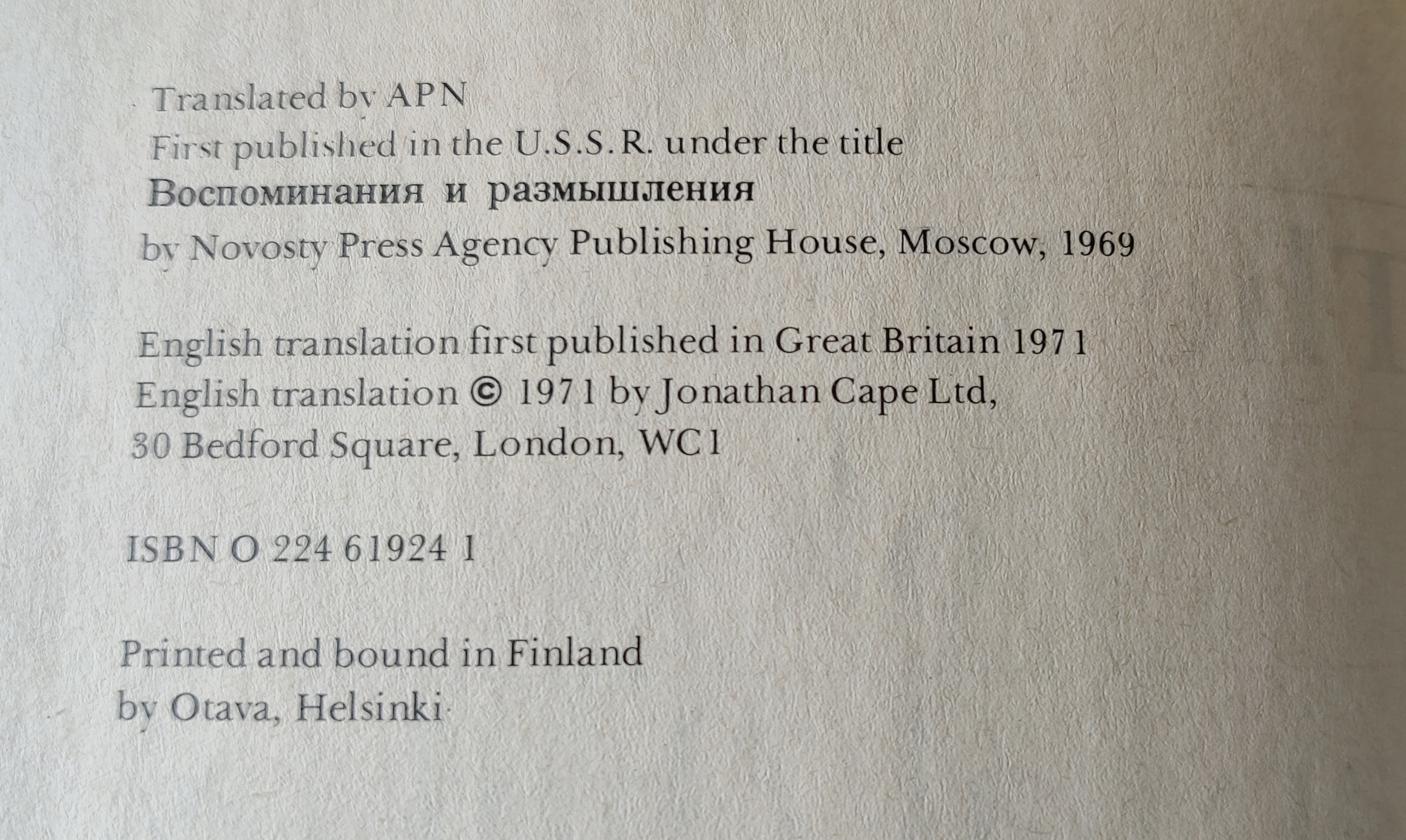Was that published by one of those old Soviet publishers? I forget their name(s) but they helped print Marxist and Leninist and history in English and other languages to spread around to non-Russians. Incredibly cool and based. I have a couple of the books printed by one of them. Capital Vol I-III and some other writings by Marx and Engles. It feels weird reading them, but they’ve held up pretty well over the years. All hardcover, fairly decent quality from like the 1970s I think.
I have this old “beater” copy of Capital printed way fucking back in 1930 something. It’s old as hell, pages falling out, obviously been read and reread by many people. Someone even had notes they wrote on the pages. I got it for basically free. Like probably most people now, I do most of my reading on ereaders, tablet, phone, audiobook, but there is definitely something classic and timeless about holding a book from your grandparents or great grandparents time and being able to engage with the same ideas.

It looks like it was translated & published by some English firm shortly after the original was published in the USSR. I couldn’t find any Soviet ties with the brief googling I did.
It’s a little rough around the edges but that just comes from it being a 60 year old book. It’s clearly been well cared for. I always wonder about the journey these old books take

Ah, ok. Yeah it’s kinda hard finding the info online. I don’t think for conspiratorial reasons, just that these printers stopped over 30 years ago now (sadly).
Here’s a picture from my Capital Vol II. It’s in English, printed 1967, in the USSR. Pretty cool. Don’t even remember where I got these, but they seem to have been in a library at some point and totally unread (very sad, but good for me).
Why is it weird reading them? Awkward translation?
No, because it feels like they’re gonna fall apart.
The translations are generally very good from what I’ve seen. Even the really old first translation from 1906 of Capital Vol I is very good. From my understanding, the guy who translated was a native German and English speaker, so that’s probably why. He has a foreword in the old-ass Capital where he’s like “I’m a farmer and I have 20 kids. I been working in the fields 12 hours a day and translating by night for years now. Someone please send help.” That’s my shitty paraphrasing from memory, but not far off.
Does it include a chapter on what a war hero needs to do to get a little lubrication?
Not that I’ve found, I’m still in the early chapters where he talks of his childhood, his apprenticeship to a furrier, his early political education, and being drafted into the army in 1915.
It’s an interesting side note, but he outlines that the artisans weren’t nearly as politically involved as factory workers and other proletarians because the artisan class was more focused on their individual advancement and the possibility of opening their own shops while the factory workers had no hope of ever starting their own factories and so were more involved in labour organization
Spit it out Georgy, stagin’ a coup here.

that right there is a fuckin tome








